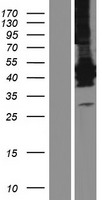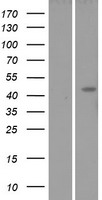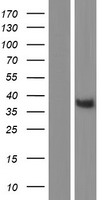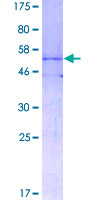order histories, retained contact details for faster checkout, review submissions, and special promotions.
Forgot password?
order histories, retained contact details for faster checkout, review submissions, and special promotions.
Locations
Orders Processing,
Shipping & Receiving,
Warehouse
2 Shaker Rd Suites
B001/B101
Shirley, MA 01464
Production Lab
Floor 6, Suite 620
20700 44th Avenue W
Lynnwood, WA 98036
Telephone Numbers
Tel: +1 (206) 374-1102
Fax: +1 (206) 577-4565
Contact Us
Additional Contact Details
order histories, retained contact details for faster checkout, review submissions, and special promotions.
Forgot password?
order histories, retained contact details for faster checkout, review submissions, and special promotions.
LFNG / Lunatic Fringe
LFNG O-fucosylpeptide 3-beta-N-acetylglucosaminyltransferase
LFNG / Lunatic Fringe is a member of the fringe gene family which also includes radical and manic fringe genes. They all encode evolutionarily conserved glycosyltransferases that act in the Notch signaling pathway to define boundaries during embryonic development. While their genomic structure is distinct from other glycosyltransferases, fringe proteins have a fucose-specific beta-1,3-N-acetylglucosaminyltransferase activity that leads to elongation of O-linked fucose residues on Notch, which alters Notch signaling. This gene product is predicted to be a single-pass type II Golgi membrane protein but it may also be secreted and proteolytically processed like the related proteins in mouse and Drosophila (PMID: 9187150). Mutations in this gene have been associated with autosomal recessive spondylocostal dysostosis 3. Multiple transcript variants encoding different isoforms have been found for this gene.
| Gene Name: | LFNG O-fucosylpeptide 3-beta-N-acetylglucosaminyltransferase |
| Synonyms: | LFNG, SCDO3 |
| Target Sequences: | U94354 AAC51360.1 Q8NES3 |








If you do not find the reagent or information you require, please contact Customer.Support@LSBio.com to inquire about additional products in development.









